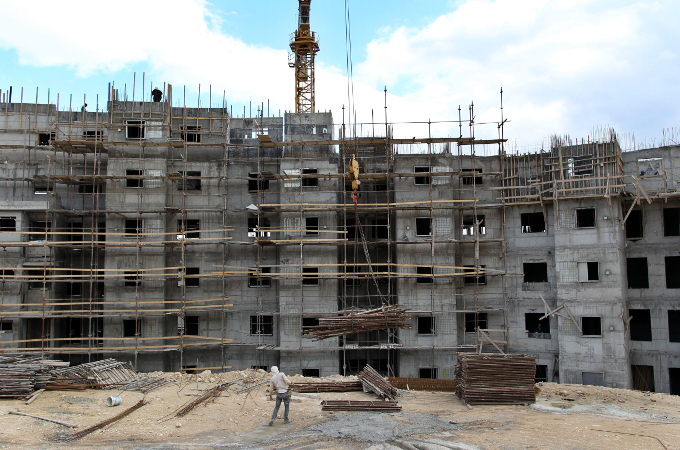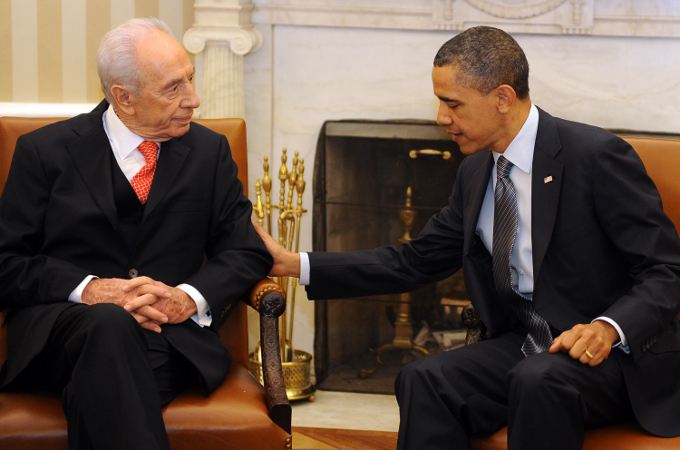Prominent Israelis offer ‘peace initiative’
The plan, drafted in part by ex-military and intelligence officials, includes land swaps and no right of return.

 The proposal allows Israel to annex Jewish settlements in the West Bank in exchange for equal amounts of territory [EPA]
The proposal allows Israel to annex Jewish settlements in the West Bank in exchange for equal amounts of territory [EPA]A group of prominent Israelis, including former high-ranking military and intelligence officials, has unveiled an “Israeli peace initiative” which it hopes will prod their government towards a deal with the Palestinian Authority – but few of the group’s proposals are new, and several have been rejected in the past by Israeli and Palestinian leaders.
The plan, unveiled on Wednesday, would call for Israel to withdraw to 1967 borders, with a series of swaps allowing it to annex major Jewish settlements in the West Bank. It would not provide a right of return for Palestinian refugees, though they would receive financial compensation; and it calls for normalised relations between Israel and Arab states.
“The key principle of all regional peace agreements shall be Israeli withdrawals, guaranteed security, normal relations, and an end to all conflicts,” the proposal states.
A group of about 40 people worked on the project, including former army chief Amnon Lipkin-Shahak; former Mossad chief Danny Yatom; Yaakov Perry and Ami Ayalon, both former heads of Shin Bet; and Amram Mitzna, a former leader of the Labour party.
“We looked around at what was happening in neighbouring countries and we said to ourselves, ‘It is about time that the Israeli public raised its voice as well,'” Yatom told the New York Times.
The current Israeli government has yet to comment on the proposal. Prime minister Binyamin Netanyahu’s office says he has received a copy, but will not comment on the substance of the proposal. Deputy prime minister Dan Meridor said on Tuesday that he had not seen the document.
Unpopular proposals
The plan’s authors hope it will serve as a reference point for negotiations, an Israeli counterpart to the Arab peace initiative announced in 2002.
Under the proposal, for example, Israel would be allowed to permanently annex parts of the West Bank, in exchange for equal amounts of Israeli territory ceded to the Palestinian state.
The Arab peace initiative does not mention these “land swaps” – it calls for a complete withdrawal to 1967 borders – but they have been a central feature of Israeli-Palestinian negotiations for years.
The plan would allow Israel to swap up to seven per cent of the West Bank’s area, less than the 10.6 per cent that former prime minister Ehud Olmert proposed in a private meeting with Palestinian president Mahmoud Abbas in 2008.
It would explicitly allow Israel to keep illegal settlements in East Jerusalem – “Jewish neighbourhoods shall be under Israeli sovereignty,” the plan states – and while it does not specify which West Bank land would be swapped, Israel would certainly use that provision to annex major settlement blocs like Ma’ale Adumim and Ariel.
Many other parts of the plan appear to be immediate political non-starters, either in Israel or in the Arab world.
One likely problem is the proposal’s wording on refugees. The Arab peace initiative calls for a “just solution” to the refugee problem, based on United Nations resolution 194, which enshrines a Palestinian right of return.
But the Israeli proposal states that refugees will only be allowed to return to the Palestinian state, save for a few “symbolic exceptions” who will return to Israel.
The Palestine Papers revealed that the PA’s leadership was willing to make substantial compromises on refugee rights, but these concessions would be hugely unpopular in the Arab world.
The plan also calls for Israel to return the Golan Heights, the strategic plateau it seized from Syria at the end of the 1967 war. Syria insists that the return of the Golan is a precondition for talks with Israel. But Netanyahu has promised never to return it, and polls find that a majority of Israelis want to keep the land.
And the proposal would carve up Jerusalem’s Old City: Israel would control the Jewish Quarter and the Western Wall, with the Haram al-Sharif under “no sovereignty”. Palestinian negotiators rejected this same formula during the 2000 Camp David Summit, when Yasser Arafat refused to budge on Palestinian sovereignty over the Haram.
Something to talk about
Palestinian officials have not commented on the plan; reactions from Israeli and pro-Israel groups has mostly been positive, but they have avoided commenting on specifics. J Street, the US-based pro-Israel lobby, was quick to praise the plan as a “bold move.”
“[It] sets forth a clear vision for two states and, in conjunction with the Arab peace initiative, provides a strong basis to negotiate a regional, comprehensive peace agreement,” said Jeremy Ben-Ami, the group’s president.
 Peres met with Obama, and other senior officials, during a short visit to Washington this week [EPA]
Peres met with Obama, and other senior officials, during a short visit to Washington this week [EPA]And the Israeli group Peace Now said the proposal was part of a “public battle against the current government”.
“It is clear that as time passes more and more Israelis are realising that we need to immediately return to a real political process, with the Palestinians, and begin to make brave and dramatic steps,” the group said in a statement.
The proposal will at least provide a conversation piece later this spring, when Netanyahu is expected to visit Washington for a series of meetings and public appearances. Its release comes a day after US president Barack Obama met in Washington with Israeli president Shimon Peres.
“With the winds of change blowing through the Arab world, it’s more urgent than ever that we try to seize the opportunity to create a peaceful solution between the Palestinians and the Israelis,” Obama said.
But the Obama administration, which spent much of last year trying to broker direct negotiations between Israel and the Palestinian Authority, has yet to present its own vision for an Israeli-Palestinian settlement.
Israel’s current right-wing government has shown little interest in permanent status talks with the PA; Netanyahu has hinted recently at wanting to pursue an “interim” agreement, rather than a final deal.
Meanwhile, while talks stagnate, Israel continues to build illegally across those 1967 lines to which it is eventually supposed to withdraw. The Jerusalem planning committee on Monday gave initial approval for 942 new homes in the Gilo settlement in southern Jerusalem.